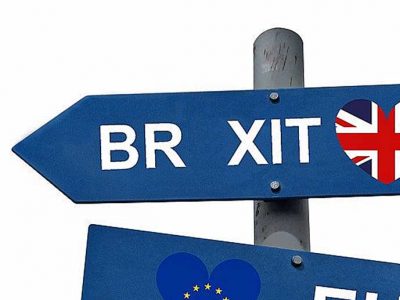To commemorate her departure from the European Union, Britain has proposed to reduce the size of her alphabet from 26 to 24 characters. The letters E and U will be unceremoniously sent back to ancient Greece where they came from.

Gina Ribena, spokesperson at the Ministry for Exiting the European Union, announced: “This is our way of saying goodbye to the narrow and self-serving alphabet of the EU, and embracing global alphabet partners.”
The fact that E and U are – respectively – the first and the eleventh most common letters in the English language has caused consternation among serious and casual syllable fans alike. Brian Netherham, plumber and occasional word-user, said:
“I never really thought about it before, but letters are a big part of my life. I need them for loads of things: expressing surprise or annoyance, singing on match days and screaming in ecstasy with a mid-priced Thai masseuse.”
“Although for all those I could probably just use variants of O. You know what, maybe U is useless after all?”
Professor of English Language at Oxford University Angela Squittles was less sanguine: “This, like virtually all of Brexit, is just a gross act of self-harm. It’s cutting off our tongue to spite our throat.”
“Just because the Prime Minister speaks largely through the medium of incoherent mumbling, it doesn’t mean the rest of us should have to.”
The government has set of goal of 2021 to purge official communications of the banned vowels. The EU-free alphabet will be made mandatory in schools by 2023, and anyone caught using the letters after 2025 will be branded a word witch and forced to wear a scold’s bridle.
Boris Johnson gave a brief speech today in support of the proposal: “fmmooofffpah…bubububu…Blitz spirit…popapopa…Winston Churchill…foddyfoddyfoddy…carpe diem,” which was then translated by the official Downing Street interpreter as:
“This government represents the silent majority, those who can’t or won’t speak because their mouths are full of these tiresome migrant vowels.”
“We should open up our alphabet for twenty-first century global communication, for example by replacing E and U with emojis. So “EU” together could be represented by the poo icon, which could be replicated in spoken language by sticking your tongue through your lips and blowing a raspberry.”
Gaining international approval for the new alphabet is unlikely to be easy. As part of trade deal negotiations, America is demanding that Britain give up certain words with dual-meanings, like “pants”, “trunks” and “fannies”. Top of the list is “trump”, which means abrupt bum explosion in British English, but presidential bum explosion in American English.
However, for some forward-thinking xenophobes, shedding English of foreign vowels is only the start. Jim Tugwell, amateur public rager, roared:
“We’ve spent thousands of years in thrall to some foreign squiggles and lines. I want my Britain to finally be free, to go back to the proper language of grunts, snorts and guttural wails that made this land so great. HHHHHHYYYYYGGGGGGGGAAAAAHHHHH!”
“Sorry, um, that doesn’t actually mean anything, I just bit my tongue in excitement.”
The story: Richard Richardson, provincial correspondent, Downing Street
We have published this article in Finnish too.
 Hyvä ihminen,
Hyvä ihminen,


